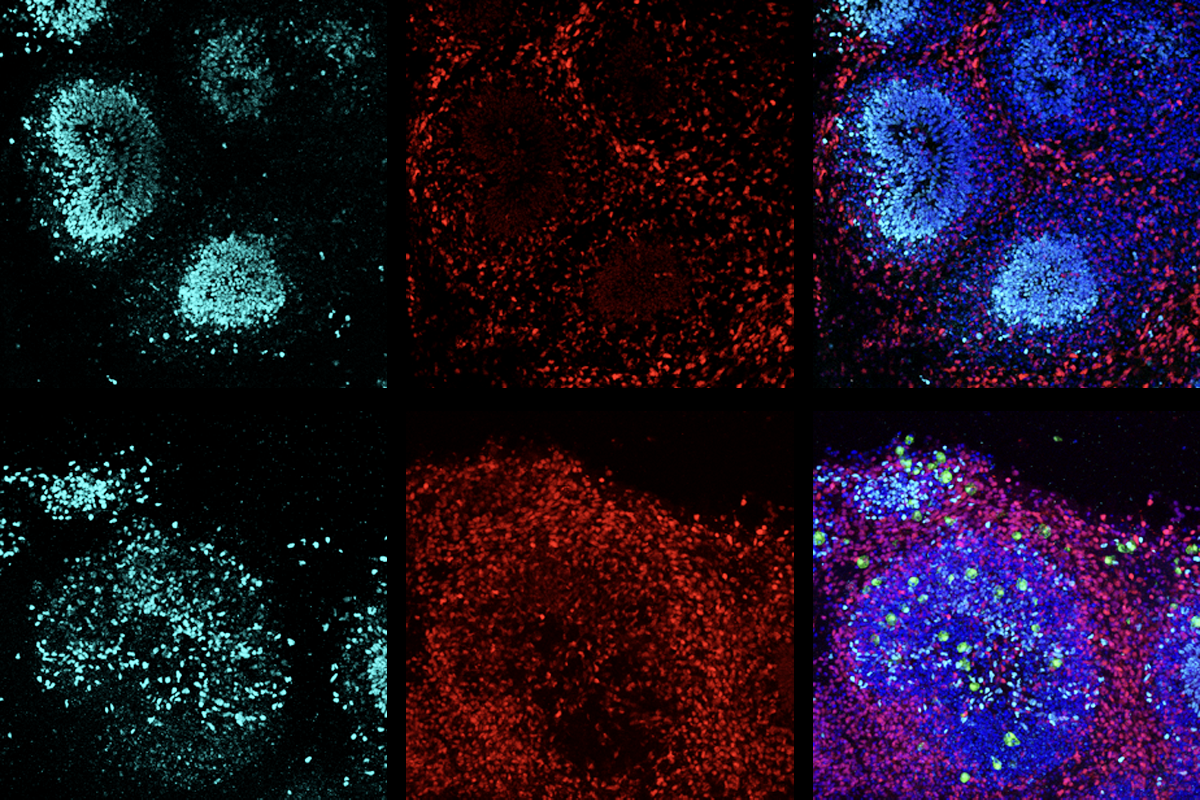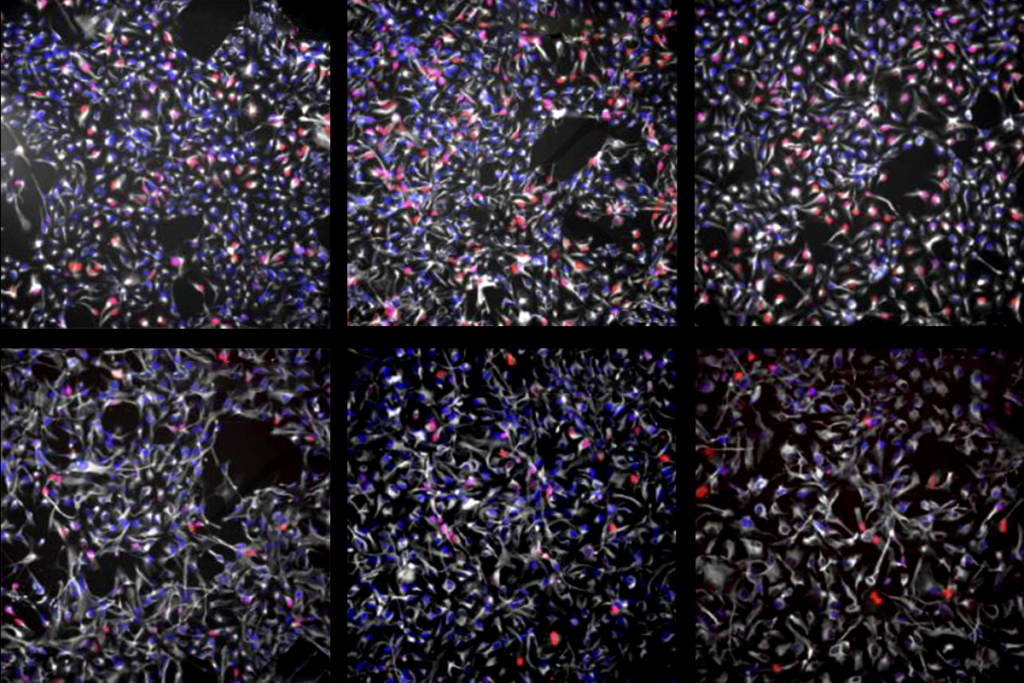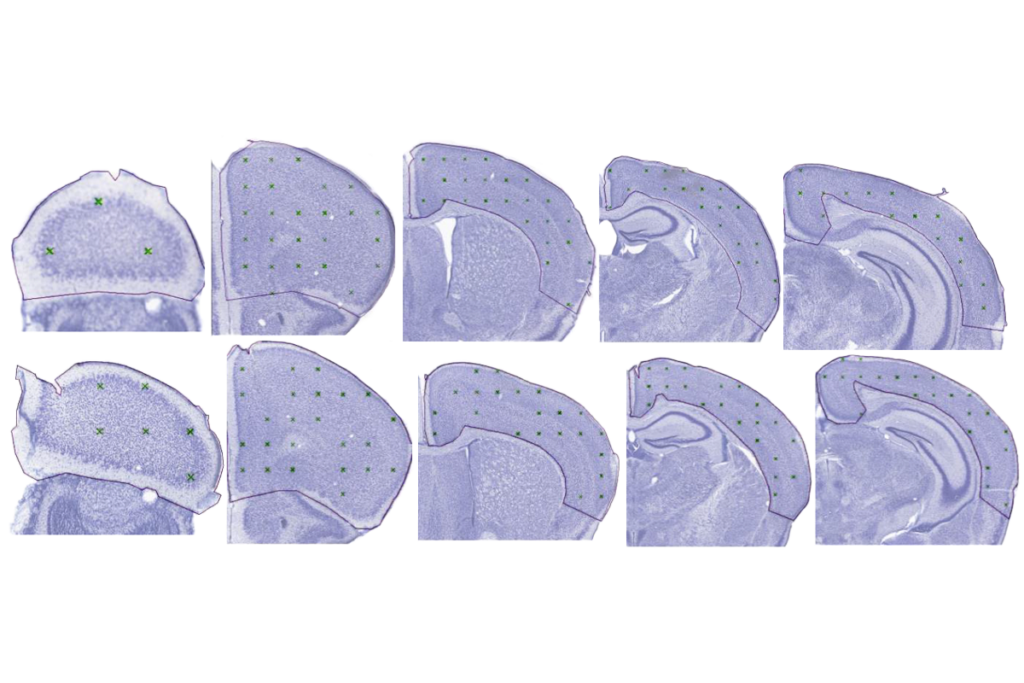- Autism research has a tension between those studying its biology and those advocating for more support and acceptance, writes Science editor-in-chief H. Holden Thorp, who recently disclosed that he himself is autistic. Science
- Each of five different autism-linked genes plays a role in the migration of enteric neurons in Xenopus frogs, suggesting a common biological underpinning for gastrointestinal problems in autism, according to a preprint. bioRxiv
- The RNU4-2 gene, which encodes a nuclear RNA that is part of the spliceosome, appears to be linked to intellectual disability. Nature Medicine
- The Social Communication Questionnaire is a useful autism screen in rural Kenya, with good sensitivity and specificity. Spectrum has previously covered the efforts of several investigators on this project, including Patricia Kipkemoi’s work with the Neurodev project. Journal of Autism and Developmental Disorders
- Cerebral organoids containing integrated microglia can model transcriptional and structural changes caused by inflammatory mediators, according to a preprint. Spectrum reported on similar findings by other researchers in 2021. bioRxiv
RNU4-2 gene; autism screening in Kenya; Rett syndrome gene therapy
Here is a roundup of autism-related news and research spotted around the web for the week of 10 June.
By
Jill Adams
11 June 2024 | 2 min read

Immune boost: Cerebral organoids develop more mature neurons when microglia are present (bottom row) than when they are absent (top row). From left to right: progenitor cells, mature neurons, and merged.
- Resting-state electrophysiology may serve as a reliable biomarker of brain activity in people with fragile X syndrome. Spectrum has previously covered the search for fragile X biomarkers to aid drug trial evaluation. Biomarkers in Neuropsychiatry
- Zinc plays a key role in SHANK3 functioning to organize the structure of glutamate synapses. Mice missing ZNT3, which encodes a zinc transporter, have unusually small dendritic spines and show autism-like behaviors. Journal of Neuroscience
- A multisite cohort study—the European Autism GEnomics Registry (EAGER)—aims to create a registry of autistic people who have undergone whole-genome sequencing. BMJ Open
- An experimental gene therapy for Rett syndrome, called NGN-401 and produced by Neurogen, is slated for development in concert with the U.S. Food and Drug Administration’s START program. Rett Syndrome News
tags:
Recommended reading

INSAR takes ‘intentional break’ from annual summer webinar series
By
Lauren Schenkman
30 June 2025 | 4 min read

Dosage of X or Y chromosome relates to distinct outcomes; and more
By
Daisy Yuhas
24 June 2025 | 2 min read
Explore more from The Transmitter

Machine learning spots neural progenitors in adult human brains
By
Claudia López Lloreda
3 July 2025 | 7 min listen
Xiao-Jing Wang outlines the future of theoretical neuroscience
By
Paul Middlebrooks
2 July 2025 | 112 min listen

Memory study sparks debate over statistical methods
By
Katie Moisse
2 July 2025 | 5 min read
Cite this article:
